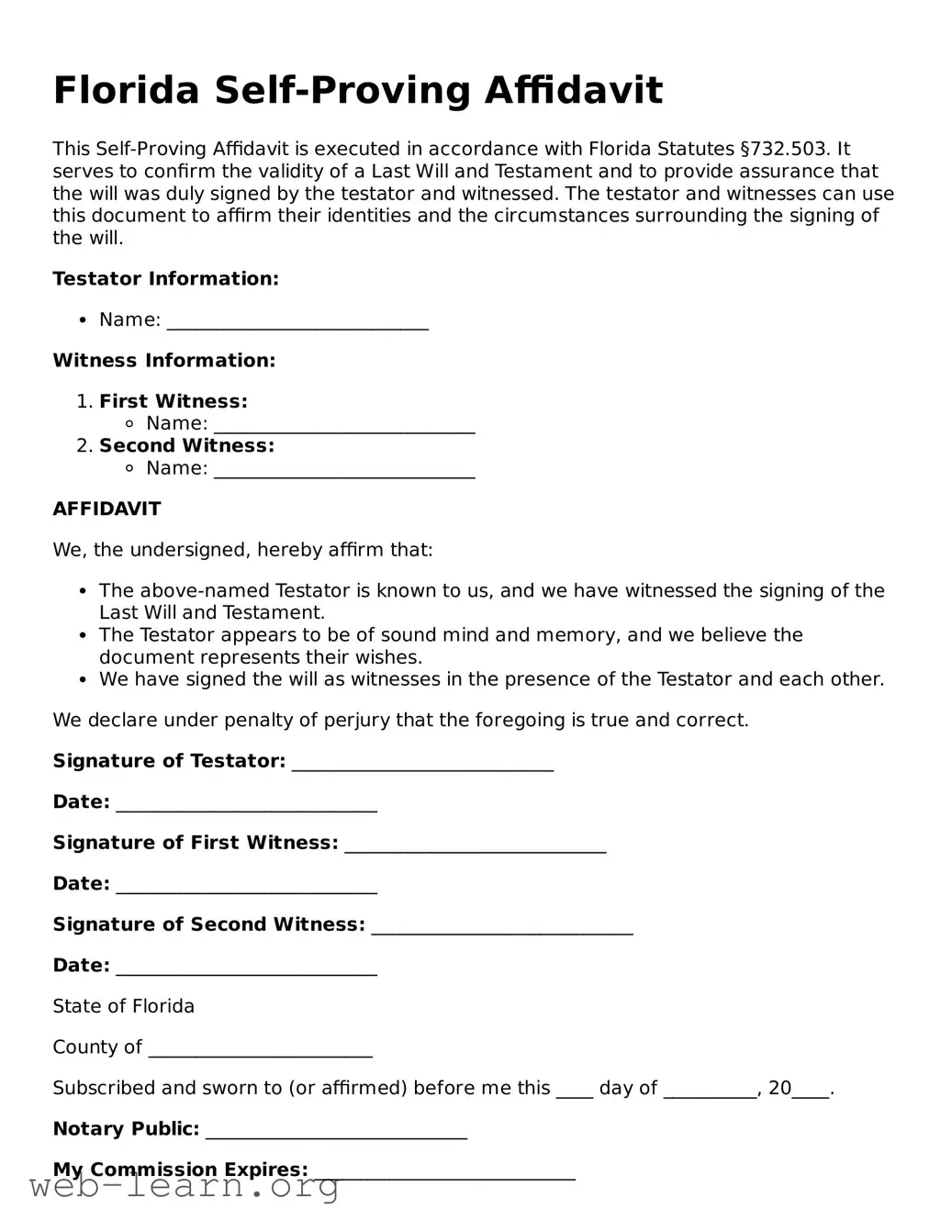Florida Self-Proving Affidavit
This Self-Proving Affidavit is executed in accordance with Florida Statutes §732.503. It serves to confirm the validity of a Last Will and Testament and to provide assurance that the will was duly signed by the testator and witnessed. The testator and witnesses can use this document to affirm their identities and the circumstances surrounding the signing of the will.
Testator Information:
- Name: ____________________________
Witness Information:
-
First Witness:
- Name: ____________________________
-
Second Witness:
- Name: ____________________________
AFFIDAVIT
We, the undersigned, hereby affirm that:
- The above-named Testator is known to us, and we have witnessed the signing of the Last Will and Testament.
- The Testator appears to be of sound mind and memory, and we believe the document represents their wishes.
- We have signed the will as witnesses in the presence of the Testator and each other.
We declare under penalty of perjury that the foregoing is true and correct.
Signature of Testator: ____________________________
Date: ____________________________
Signature of First Witness: ____________________________
Date: ____________________________
Signature of Second Witness: ____________________________
Date: ____________________________
State of Florida
County of ________________________
Subscribed and sworn to (or affirmed) before me this ____ day of __________, 20____.
Notary Public: ____________________________
My Commission Expires: ____________________________
